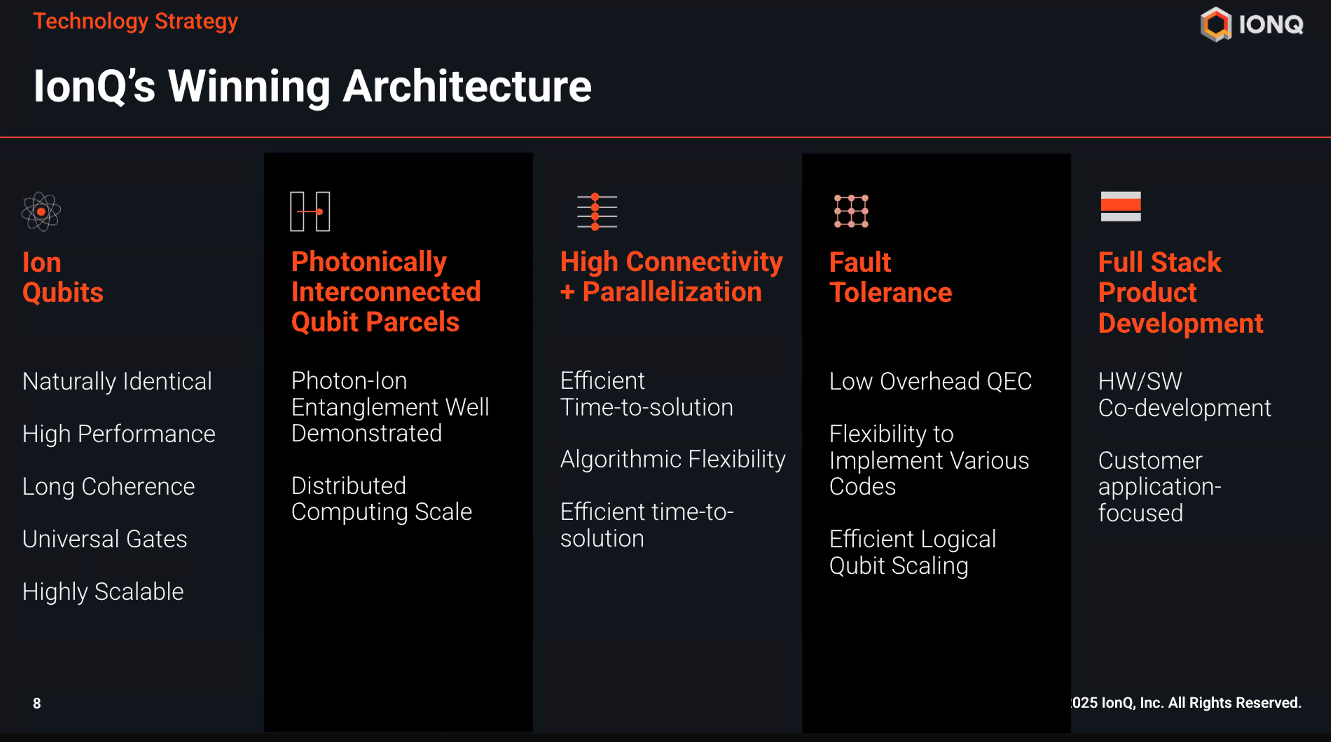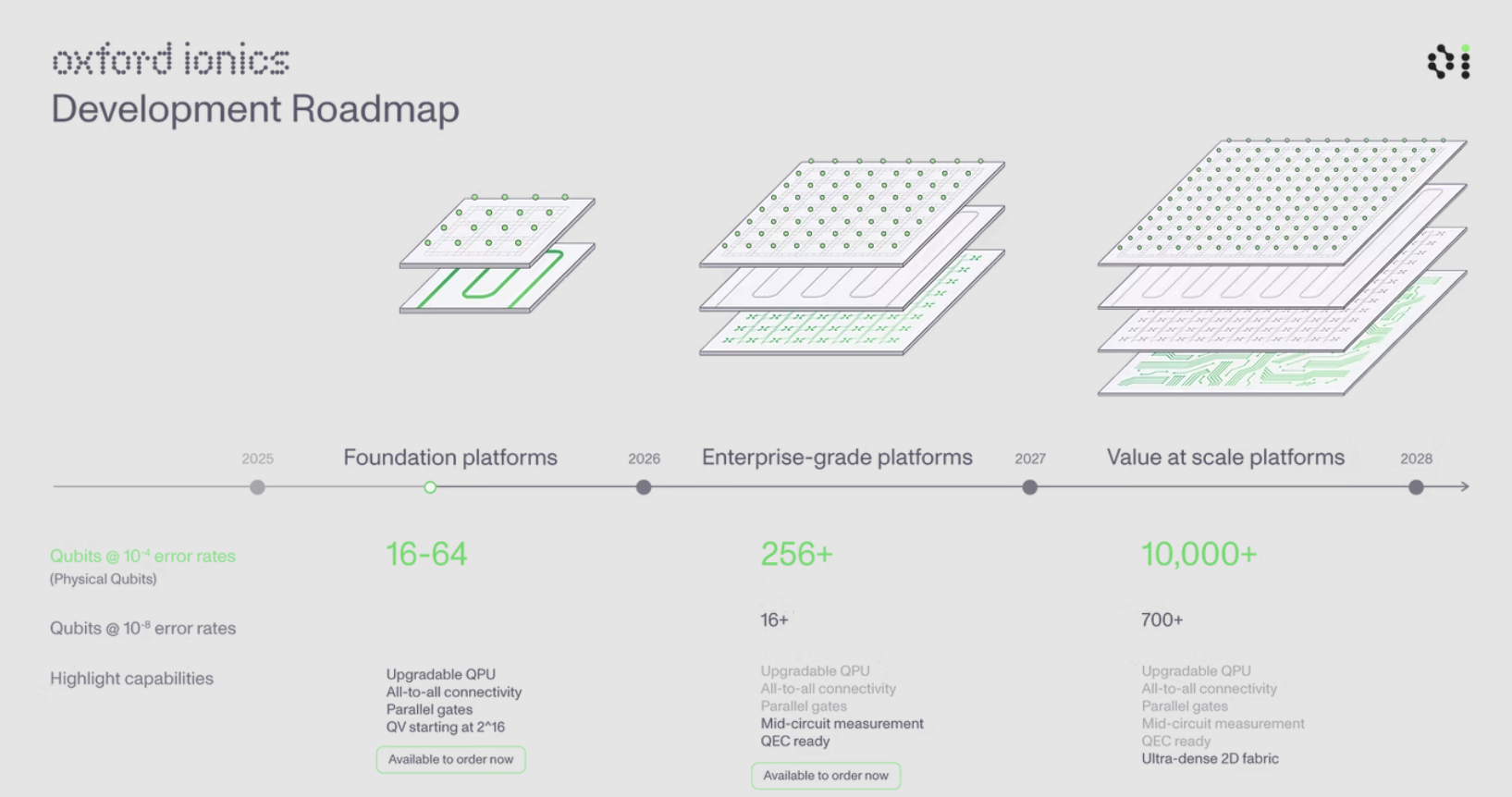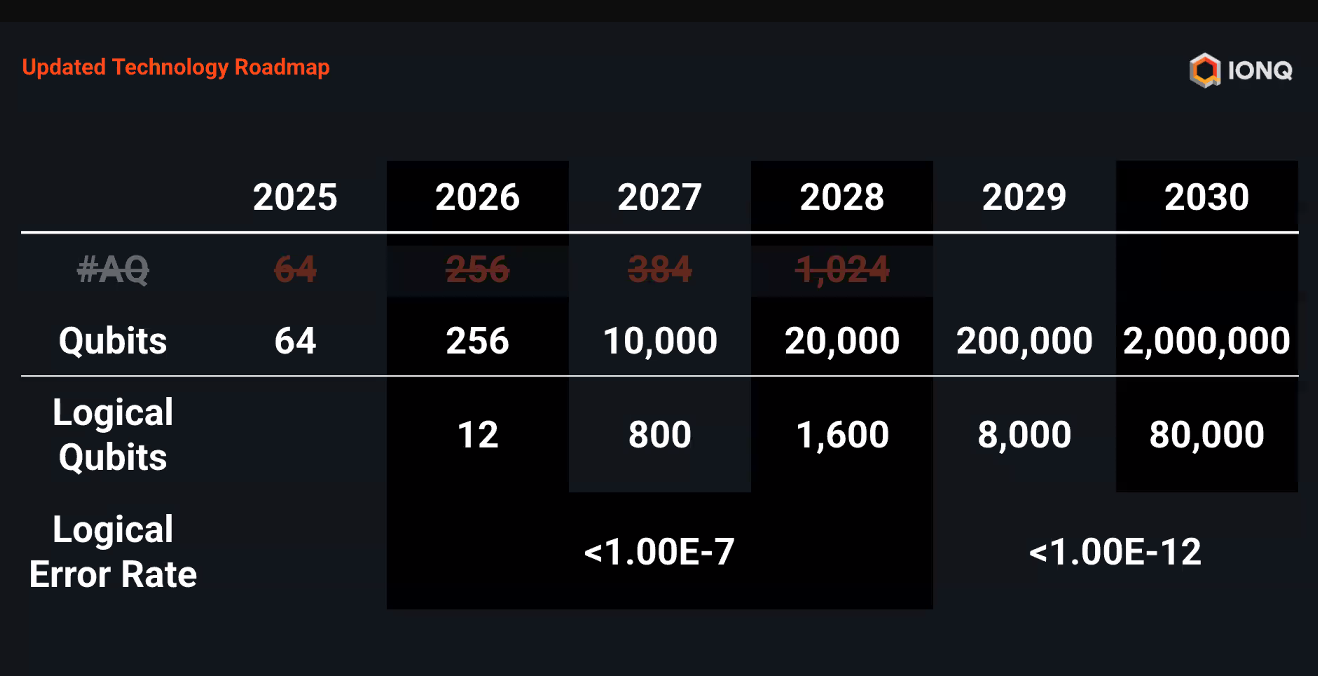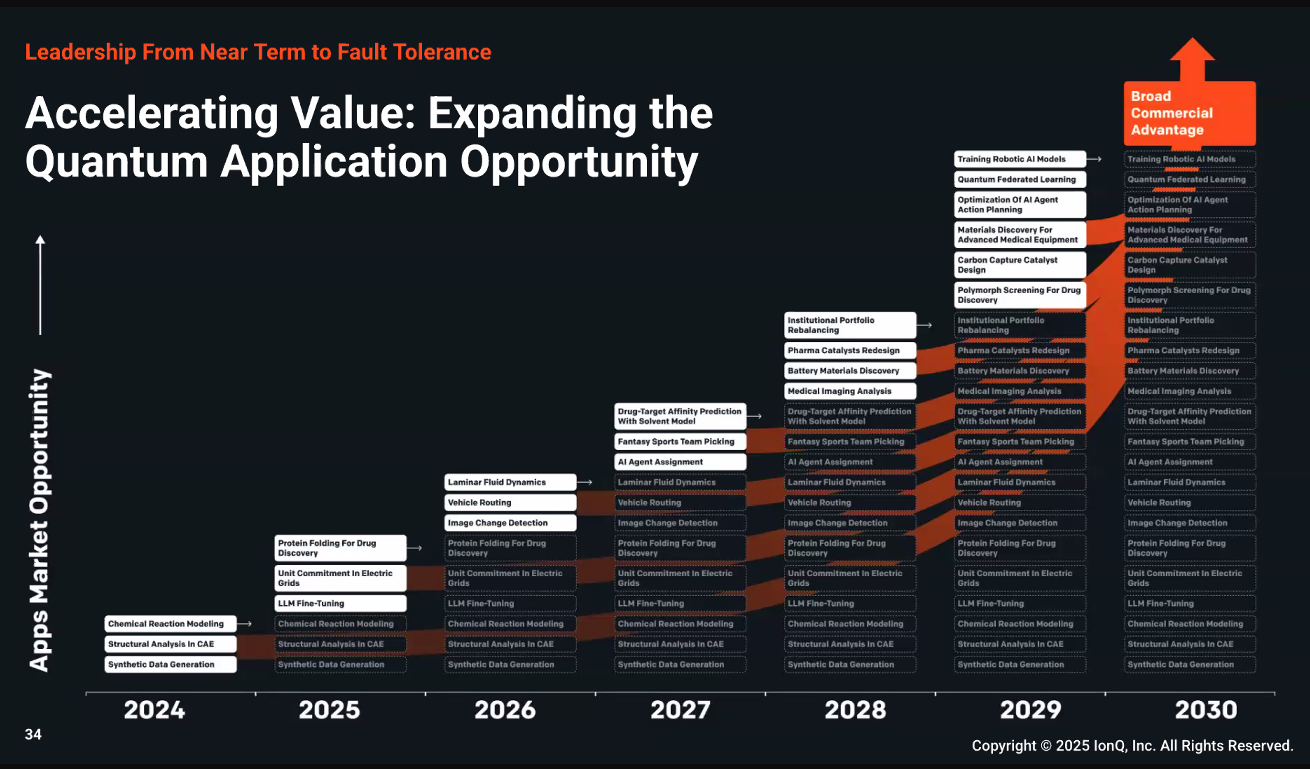IonQ acquires Oxford Ionics for $1.07 billion, gets quantum-on-a-chip technology
IonQ said it will acquire UK's Oxford Ionics in a deal valued at $1.075 billion in mostly stock and $10 million in cash. The deal is designed to accelerate IonQ's quantum computing roadmap and establish a global hub for research and development.
The purchase is IonQ's largest to date. Niccolo de Masi, IonQ CEO, said in a statement that the Oxford Ionics purchase will " set a new standard within quantum computing and deliver superior value for our customers through market-leading enterprise applications."
According to IonQ, the Oxford Ionics will bring complementary technology to the company. IonQ focuses on trapped ion systems and Oxford Ionics holds world records in fidelity, which measures the accuracy of quantum applications. The game plan for the combined company is to provide an integrated quantum computing stack that features IonQ quantum computing, applications and networking with Oxford Ionics ion-trap technology, which is manufactured on standard semiconductors.
Oxford Ionics ability to bring ion-trap-on-a-chip to IonQ and enable the combined company to "accelerate IonQ’s commercial quantum computer miniaturization and global delivery." Oxford Ionics founders, Dr. Chris Ballance and Dr. Tom Harty, are expected to remain with IonQ after the acquisition is completed.
In an SEC filing, IonQ said it will issue up to about 35 million new shares to pay for the deal. The company said:
"The number of shares of Common Stock to be issued will not be less than 21,143,538 or more than 35,241,561. The final number of shares of Common Stock to be issued as Transaction Consideration will be calculated using the volume-weighted average price for shares of Common Stock for the 20 trading days immediately preceding, but not including, the third business day prior to the date of the Closing, but will not be more than $50.37 per share or less than $30.22 per share."
Ballance said Oxford Ionics' quantum chip can be manufactured in standard semiconductor fabs. "We look forward to integrating this innovative technology to help accelerate IonQ’s quantum computing roadmap for customers in Europe and worldwide," said Ballance.
IonQ has been on an acquisition spree of late with an emphasis on quantum networking. The acquisition of Oxford Ionic is designed to bring scale to compute and use cases in materials science, drug discovery, logistics, financial modeling and defense.
Here's a look at IonQ's acquisitions.
- Lightsynq Technologies, a startup focused on photonic interconnects and quantum memory. Capella Space, which specializes in quantum space networks. See: IonQ’s plan: Quantum networks extending into space
- ID Quantique, focused on quantum safe networking and quantum detection systems. See: IonQ doubles down on quantum networking, names new CEO as it eyes scale
- Quibitekk, a quantum networking company. IonQ’s bet on commercial quantum computing working, acquires Quibitekk
IonQ has also been expanding its global footprint and Oxford Ionics will be a beachhead in the UK.

Oxford Ionics outlined its roadmap last month with a plan that features enterprise grade quantum computing by 2027. IonQ's roadmap features a similar timeline and will bring an established customer base and sales team to better commercialize Oxford Ionics.

In a statement, IonQ said the combined company plans to build systems with 256 physical qubits with 99.99% accuracy by 2026 and scale to 10,000 physical qubits with logical accuracy of 99.99999% by 2027. Ultimately, IonQ wants to hit 2 million physical qubits in quantum computing by 2030.
- Constellation ShortListâ„¢ Quantum Computing Platforms | Quantum Computing Software Platforms | Quantum Full Stack Players
- CxOs need to focus on quantum computing readiness, not the noise
IonQ and Oxford Ionics held a technology overview call featuring Ballance and Dr. Mihir Bhaskar, CEO of Lightsynq, which was acquired. De Masi touted a recent use case with Astra Zenica, IonQ, Nvidia and AWS and added that Oxford Ionics will accelerate commercial usage.
"IonQ, Lightsynq and Oxford Ionics will create the winning quantum computer in each year and every era of quantum computing," said de Masi.
Dean Kassmann, SVP of engineering and technology at IonQ, said the company's latest acquisitions will "represent a significant acceleration of our planned development work to realize our vision to build the world's best quantum computers to solve the world's most impactful and complex problems."
Kassmann also outlined IonQ's roadmap with Oxford Ionics in the fold.

Ballance said Oxford Ionics approach to leveraging existing technologies to go along with quantum computing will be scalable. Ballance said:
"We have a clear path to apply this to systems with 10s of 1000s of qubits in a single chip, and we've been to be working on our 256 qubit quantum processor units. Our technology allows us to scale devices to millions of qubits by building bigger and bigger chips. But what's more, these chips can be networked by photonic interconnects to allow for distributed compute."
Constellation Research analyst Holger Mueller said:
"The road to commercial quantum uses cases goes this way: (a) more qubits, (b) better error correction or (c) a combo of both. For a decade the industry was squarely rooted in more qubits. More recently it's about error correction, which means that vendors think they have sufficient qubits. IonQ is the perfect example of saying it's a combo of both to enable more sophisticated quantum use cases."


